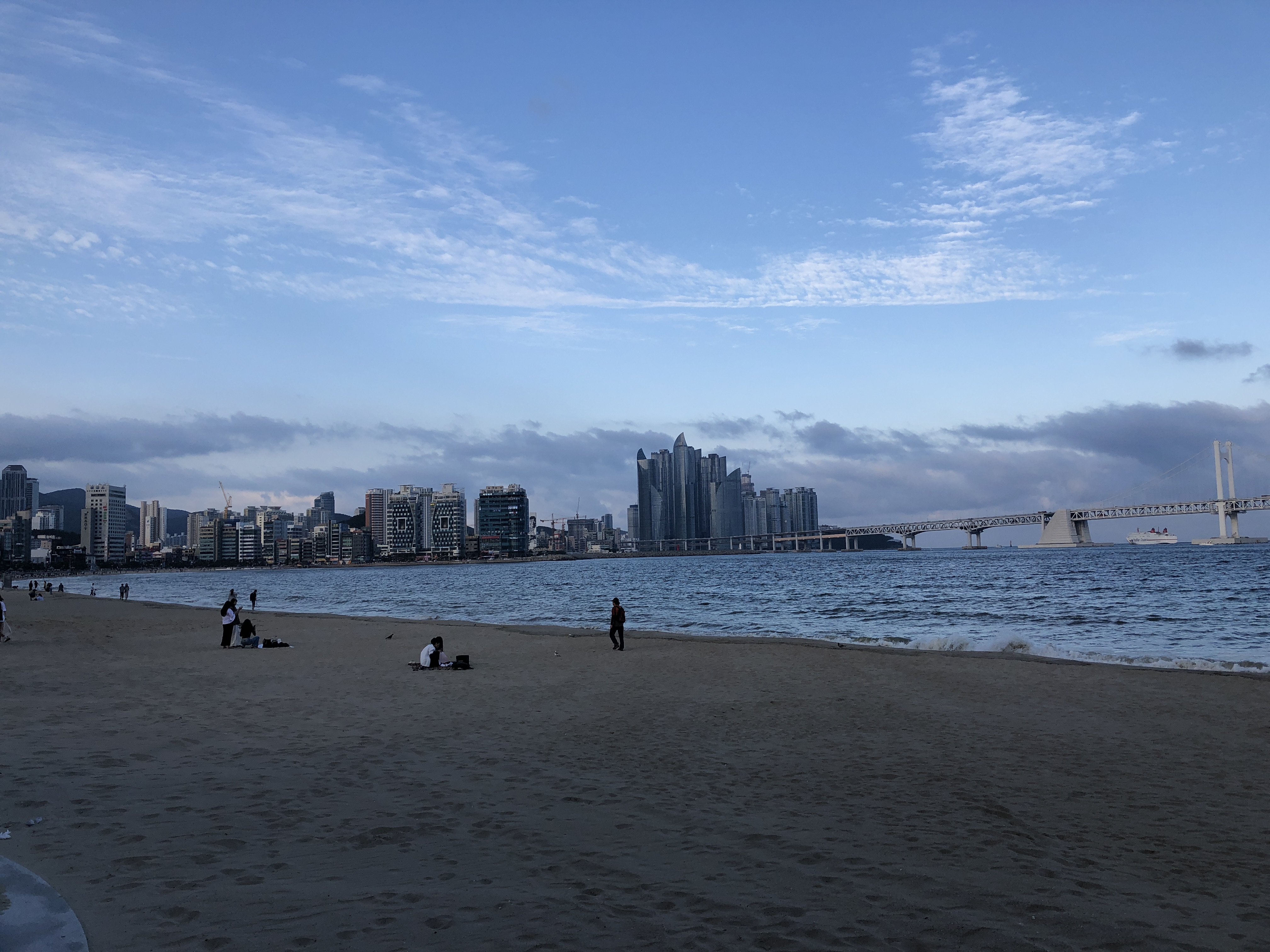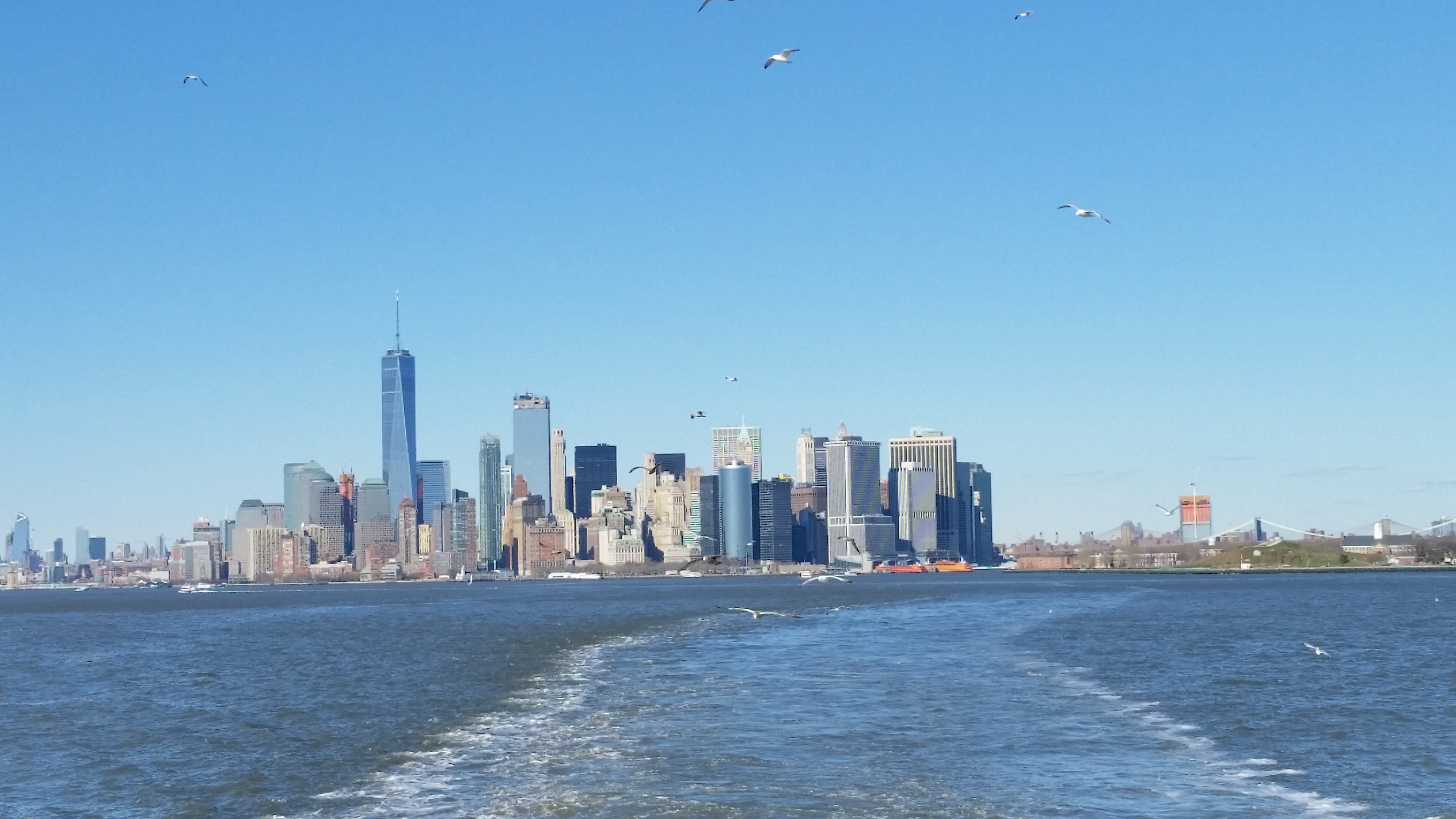Why We Want to Return Abroad - Regardless of the Pandemic
March 2021
Tales of Transition
By Analin Saturria McGregor
2020 changed everything. It’s understandable that people may reconsider moving or going abroad, for a number of reasons:
- Not wanting to get too far from family and friends (or wanting to come back closer)
An unstable job market
Wanting stability after a year of lots of (unexpected) changes. - When we returned to the U.S. almost three years ago, we knew returning abroad was in our future. When the pandemic started, we wondered if the way things were going would make us change our minds.
It didn’t.
Living and working abroad as educators have definitely influenced our mindset and our view of the world. Despite the deep despair that the pandemic has put people through all over the world, this season hasn’t soured our perspective on living abroad, or diminished our excitement to “get back out there.”
When people hear that we live and work in Hawaii, they often comment on how lucky we are, how incredible it must be to live in such a beautiful place. We are, and it is.
We’ve been asked in interviews, “Why are you leaving paradise?”

The answer is very simple: you can’t replicate international communities back home. Living internationally, in our experience, transforms people in ways that a domestic experience is unlikely to do. And we miss that.
A Mobile Life
My husband and I met in graduate school in the U.S. Pacific Northwest. We’re from different countries, different races, and different backgrounds. As we got to know each other, we realized we were kindred spirits in more ways than one. Up to that point, he had traveled the world to an extent I only dreamt of, or had experienced only through books. The only clear career goal I had since I was a kid was to “travel for work.” For him, pursuing education only came into clear focus after going abroad for the first time and visiting an international school in Hong Kong where a friend worked. So naturally, when we met, our desire to experience different places and cultures in depth drew us together.
I was born and raised in the Dominican Republic. Despite our population of ten million, I realize my circles of family and friends are small when I start connecting the dots of how I know people. My husband, on the other hand, was born in a town in Washington with a total population of 1,500. Naturally, most people really do know each other. But unlike others who have little interest in leaving small towns, or will do everything in their power to return, both of us knew that there was more out there.
How We Manage to Feel At Home in Different Places
We’re at a point in our lives where “feeling at home” has become easier and easier, and more associated with different places. There’s not one place in the world where we feel at home more than others, except for what I affectionately call “the headquarters” in Oregon. We’ve gotten to a point where we can build that feeling of “home” through connecting with like-minded people, following our interests, and creating a comfortable home space that we always want to return to.
Some non-negotiables in all our living spaces are:
- A couch that we love and we can “live” in the perfect couch needs to allow for extended sitting/lying down while binge-watching, be comfortable enough to nap in, and be in a color that is forgiving of tough stains.
- A few blankets and pillows: Being from a tropical country, I get cold very easily. We have a few soft but cozy blankets that we keep handy. The oldest one is ten years old - it was a Christmas present from my mother when I was in grad school. Part of making a living space home is having objects that evoke fond memories, such as family pictures, keepsakes from our travels, and favorite books, and I always make space for them in my shipment or luggage.
- A kitchen that allows for cooking: Cooking is a big part of my life. It’s so important to me that it’s part of my stress management routine. So the places I live in need to account for an extended time in the kitchen. It doesn’t have to be huge - having lived in China, I can make do with small ranges and limited space. But having the means to cook at home is important to us.
Returning “Home”
“Moving for the jobs” was how we ended up in Hawaii in 2018. We expected to experience reverse culture shock upon returning to the United States after almost eight years abroad, but we now understand that our culture shock was much greater due to Hawaii’s unique characteristics.
Reverse culture shock is less known than culture shock itself, but if you talk to people who have returned home after a stint abroad, you’ll see that virtually everyone has experienced one version of it or another.
Have you ever returned home and met up with your high school classmates who stuck around? You’re super excited to share your incredible adventures and could go on and on about running across airports due to a tight connection, or the frog that snuck into your pool in Vietnam, or the sea of selfie sticks at Angkor, or how happy we are to go to only ONE grocery store when we’re back in the States, or bursting into tears because your noodles have mushrooms in them you don’t recognize. All of these are stories of real adventures we’ve told multiple times and remember fondly. And as you go on and on, you notice people’s attention is wandering and their expressions are not as lit up as yours. It might remind you of the reasons you left in the first place: because you felt different from everybody else.
And after about a few minutes of you talking and some polite nods, your friends lose interest in your story and move on to talking about their kids and their home renovations and whatever else is going on in their more stationary lives.
This is a classic example of reverse culture shock - when you realize that people you care about cannot relate to your experiences and, through no fault of their own, make you feel a bit disconnected and like you don’t belong in a place that is supposed to be your home.
What we miss about living abroad
When you live abroad, you either know ahead of time that your time in a certain post will be short, or you don’t want to take it for granted - which means that often, in the first few months and years in a post, you travel every chance you get. We are both people who become energized by new places, experiences, food, people, historical landmarks, and natural spaces. We may spend an afternoon simply walking around a specific neighborhood. My husband has a theory that “side streets are the ones that show you what places are really like,” so he’s always turning into side streets and alleyways - with caution and good awareness of his surroundings - to see what we can find. For some people, traveling has to be curated into “unique” experiences. We have learned over time that just seeing people live their normal lives in the places we visit is an experience in itself. And what we have found is that across the world, people are the same: mostly generous with their advice, time, and resources, with a good-natured sense of humor, and doing the best they can in their own circumstances.
We are different. Not better or worse than anyone, just different. Instead of seeing only one country as our home, we believe the whole world is our home. We have found connecting with like-minded people easier and more organic in our time abroad than in either of our home countries. Living abroad has allowed us to stay more grounded in the temporary nature of life itself, and how important it is to make the most of it.
Most of the time, we’re homebodies that are happy to stay home, eat a good meal, and turn in rather early. Yet we’ve found ourselves in larger cities like New York, Hong Kong, Busan, or Melbourne, out late, people watching, going to places we stumble upon by turning on the wrong street, and perfectly happy to let the cities tell us what to do. When we are short of ideas, we reach out to other travelers and friends in our now extensive network of connections all over the world to get suggestions or meet up with people we haven’t seen in years.
It’s been rather strange to see our friends who remain abroad navigate the pandemic in the different places where they are. It’s been hard to not feel envious of those in countries like Taiwan and Thailand, where the effects of the pandemic have been minimal. Our friends in China can’t return home for the holidays, but their lives are much less restricted than ours in the U.S. All of this is funny, because living abroad, one of our biggest concerns has been ensuring we can access healthcare in the U.S. beyond an emergency. And now, with a pandemic raging, I’m not sure we feel any more confident about the American healthcare system than any other abroad.
The most important reason why we are still actively getting ready to go back abroad is that even though there is a global pandemic, the world hasn’t changed that much, in that there are always things that worry us about different places. When we lived in China, we worried about what pollution would do to our health long-term. Five years after leaving China, I think we’re fine. In fact, we’ve been sicker in other places with cleaner air. When we told our friends we were moving to South Korea, the common question was “But what about North Korea? Aren’t you worried?”. Honestly, no, we were not.
We lived in South Korea during the first two years of the Trump administration when North Korea was conducting multiple missile tests and the language from the American president was taking a decidedly undiplomatic tone that made people very nervous. Even when these events were all over the news in different parts of the world, neither the expats nor the Koreans seemed to be as concerned about it as the rest of the world was. Even though the South and the North are still technically at war, it doesn’t affect daily life in South Korea. For us, the updates from the American Embassy were more than enough information to make informed decisions.

And after living in South Korea and being the last to find out that North Korea would do something, we got conclusive proof that sometimes, the media outside a country amplifies threats that are really not having a significant effect on the lives of the people that live there.
Talking to people in-country and reading post reviews from websites like Tales has been a valuable part of the due diligence we do while considering every possible post. In fact, reading post reviews on Tales was incredibly helpful in keeping us grounded on the reality that most places in the world are what you make of them, and can be a great experience with the right mindset. It also helped us remember that despite what the news may say at times, people continue to build a community where they go and home is where you make it so.
Timing is never perfect. The world is full of factors we can’t control, but if the pandemic has taught any of us anything, it is that “the right time” to follow our dreams is right now. So many people have had to modify or upend so many milestones and precious moments or go through them without the people they love. Even in the midst of unimaginable hardship and pain, life has gone on. We may not go back abroad this summer. But it won’t be for lack of trying, or because we got too scared to go for it.

The best advice we have received regarding living abroad is to keep an open mind. We’ve lived in three places we would have never expected: China, a place I was at first absolutely unwilling to consider; South Korea, about which we felt lukewarm at best, and now Hawaii, which was simply not something we were considering as a work post. Yet all have been incredibly rewarding in their own way. One of our favorite aspects of living abroad is that you learn to be happy with what’s available, that you make do, and get creative to make occasions special even when they look different. The material things you think you need to be happy are relative and change over time. Life is a journey of continuous searching, learning, and improvement. Living and working abroad is the embodiment of lifelong learning, a process that we relish. Being back in the US, we’ve seen that for the most part, being deeply rooted makes people set in their ways, comfortable, and in that way, happy. Our happiness involves change, and living abroad requires change - and with the change, growth.
Despite the pandemic, the world remains inviting and full of possibilities. We don’t know where we’re going next, or even if we’ll go back abroad at all - but whatever our next step turns out to be, we’re ready.
© 2021 by Analin Saturria McGregor. All rights reserved.
From the author, Analin Saturria McGregor: "I'm an international
educator and copywriter in global mobility. Follow our adventures at
nomadicgregors.com .”


